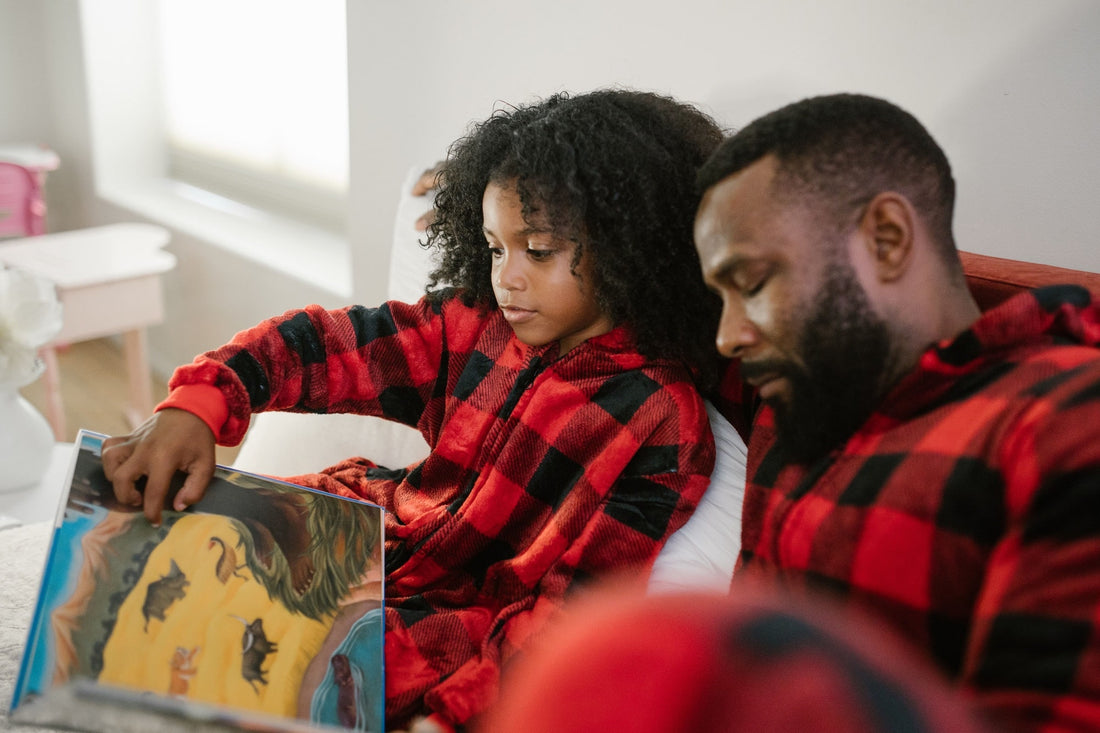
How to use fiction to empower your kids
Share
Children have active imaginations.
By age 4, they enjoy role playing and begin to learn to control their emotions and can work out some challenges by talking. They should be encouraged to express their feelings with words.
As they grow older, they develop more sensitivity to others' feelings and can understand the difference between right and wrong. From 5-7, they can understand the "how" and "why" of things.
If you are a parent, or you're responsible for any number of kids, I know that you want to provide your children with stimulating experiences that help them develop emotional intelligence and resilience, while keeping them safe. You don’t always have the luxury of time or control to provide such physical experiences all the time, so I have some tips for you.
Rather watch this? Click here
Get them books.
Books expose children to concepts and situations that they may not have experienced before. First, it builds vocabulary and a first-contact knowledge base for future learning and assimilation in school. Your kids may first learn about a walrus in encyclopedia-type books before they go to the zoo, or about a country before they teach it in geography class.
The new vocabulary they encounter is unlikely to show up in everyday conversation and this provides new learning opportunities for children.
Read with them.
I know you have work and every other thing, but reading to and with your kids provides a unique opportunity to engage them. Do it at bedtime, when they are about to sleep so that their brain can even help consolidate during sleep.
Fiction books are especially good for exposure and honing deduction and reasoning skills. Your kids experience situations and emotions as they interact with characters and the plot in a story. Here, you have the opportunity to talk about the book they are reading with them, in a relaxed atmosphere.
If the book does not have great discussion questions, create some. You can ask your children to describe something, or expand the narrative (for example, “What's more?” “How else?” or “Why do you think that?”). You can ask questions that make them infer things (for example, “What happens next” or “Why do you think the character is doing that”). In addition to reinforcing vocabulary or introducing new words, these extra conversations that usually occur provide lots of stimulation to kids, which in turn strengthens their brain’s ability to infer, deduce, and apply principles to situations. You can also help them identify, acknowledge and manage emotions through books.
Stories with characters similar to your children can be very helpful, says Doctor Jennifer Katzenstein, Director of Psychology, and Neuropsychology at Johns Hopkins All Children’s Hospital. They can provide an excellent starting point for a discussion on how the scenarios parallel real life and how to react to such experiences.
The scenarios in books can provoke emotions that your kids may never experience until they do, so it helps to get ahead with self-regulation sooner rather than later.

Emotional awareness is the first step to emotional regulation.
You can ask them, “How do you think she felt when he stepped on her toes?” “What do you call that feeling when he got his new toys back?” As you do, they will learn to recognize and label emotions. When a character hyperventilates or bites their fingers, it’s time to help them understand signs of rising emotions.
Books can also start conversations on how they can express emotions appropriately.
A character smacking the friend because he is upset is a time to talk about emotions vs behavior —why it is okay to feel upset but not okay to hit others, and how to manage emotions in a healthy way. That means you have to learn how to teach emotional regulation — another skill you can learn from subject-matter books.
You can use books to exemplify virtues like courage patience, empathy, confidence, perseverance and diligence, and how to say no (consent)— skills I am sure you want your kids to learn for life. Books can start or complement your process.
So, snuggle with your child, it may be a screening of Encanto or a page in A hat for Ivan that will get them to open up about their troubles.
____________________________
Stay tuned for more tips and guides and resource recommendations coming your way soon. We are opening our bookstore shortly so you can have a catalog of relevant resources that can help you equip your kids and your whole family!
